Couple Establishes Workshop to Develop Early Childhood Education in Community
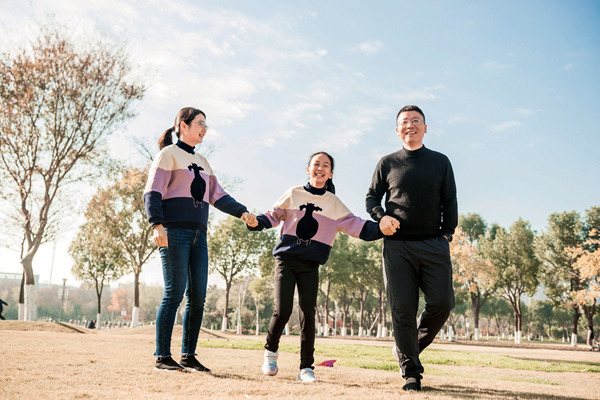
"We are truly happy to receive such a great honor!" Gu Wenzhen said, excitedly, as she held the certificate that designated her family one of the 2021 National Most Beautiful Families. The award ceremony was held on November 28, 2021. Gu and her husband, Wang Xiaojing, are from Wan'an Community, in Haishu District, Ningbo, in East China's Zhejiang Province. They established a workshop in their community, and they named it after their daughter, Keke. Gu's family was named a National Most Beautiful Family mainly because of the couple's success in educating their child.
Playing Together
Gu and Wang did not know each other when they were growing up, but they grew up in very similar circumstances; they grew up in rural areas administered by Huanggang, a city in Central China's Hubei Province. Further, their parents did not receive much education, but their parents paid a lot of attention to Gu and Wang's education. Both Gu and Wang learned their virtues from their families. "My father used to tell me that 'suffering can be a blessing.' The wisdom about life is hidden in those simple words. My family was not rich when I was young. However, my parents were optimistic, and they did their best to let me enjoy a happy childhood, which had a positive influence upon my life after I grew up," Wang recalls.
Gu in 2008 graduated with a master's degree from Tongji Medical College of Huazhong University of Science and Technology. She began working at Ningbo municipal center for disease control after her graduation. Wang in 2010 graduated with a Ph.D. from Huazhong University of Science and Technology. He has been working on planning and policy research of marine economic development with Ningbo Institute of Oceanography. The couple married in 2010. Their daughter, Keke, was born one year later.
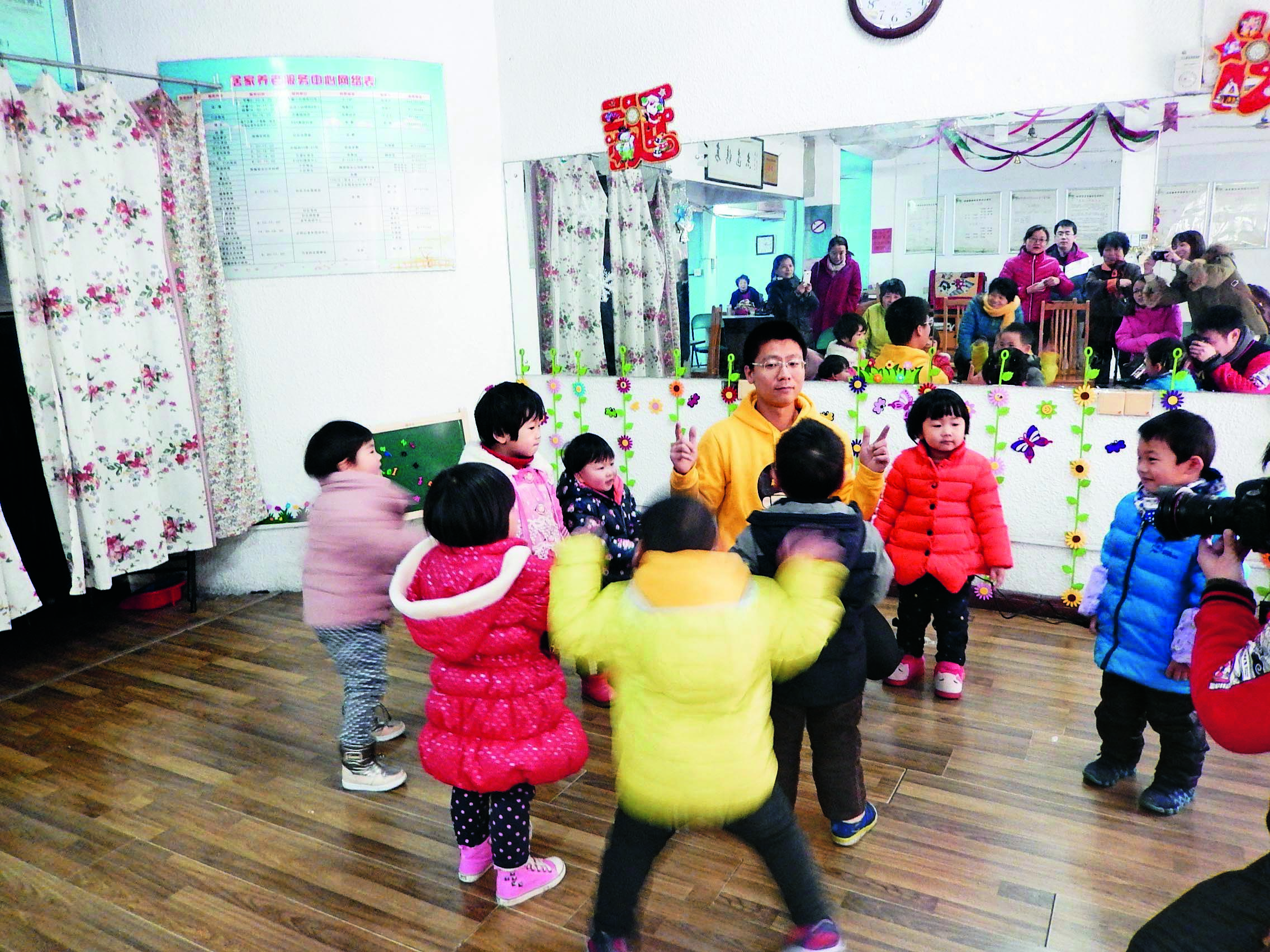
"Life was quite busy after my daughter was born. When we were exhausted, sometimes, we called our parents to get some encouragement. I think this is exactly what a family is for," Gu says.
When Keke was little, Gu and Wang often took her to play with other children in the community. "Playing is an important part of preschool children's lives. For most families, especially with a single child, it is important the child is provided with opportunities to play with other children during his/her growth. Children can learn to look after each other when they are playing together," Gu says.
Gu and Wang noticed that many children — the same age as Keke — were being cared for by their grandparents. Yet, the grandparents, perhaps because they were elderly, seemed to have a difficult time playing games with the children. To help solve this problem, Gu and Wang in 2014 organized an activity in Wan'an Community. They received permission from the residential community's committee to use the community service center, and they invited children from the community, and neighboring areas, to play games in the center.
After that successful event, Gu and Wang collaborated with Wan'an Community to establish a workshop, and they named it after Keke. "The purpose of our workshop is to let children get to know each other, help enhance communications between families and their communities, and call on parents to pay more attention to parent-child education," Wang says.
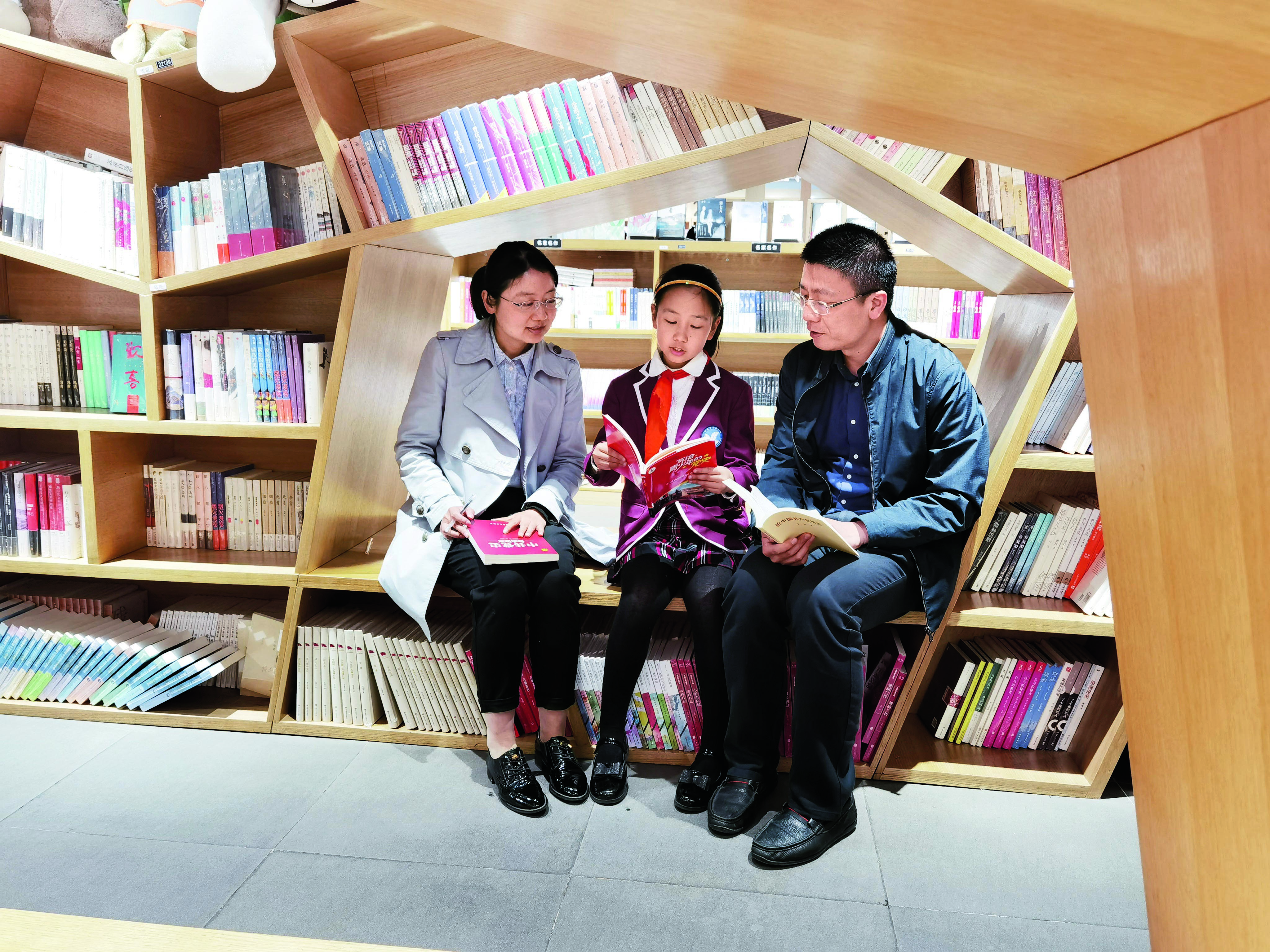
Parents' Efforts
Preschool children in Wan'an Community participate in colorful events, organized by Keke's parents' workshop, almost every weekend. "I invite teachers, who are professionals in music or fine arts, to teach the children in our community. But the most important thing is that we let the children have fun and learn from each other. Some children, who used to be shy, have become open and more willing to communicate with others," Wang says.
During the past eight years, Keke's parents have been invited to give lectures, on early childhood education, in Ningbo Experimental Primary School. Volunteers, who specialize in preschool children's education, have worked with Gu and Wang to improve the workshop's activities. When discussing plans for the workshop's long-term development, Gu and Wang express hope they will be able to recruit more parents, who will help organize activities for children in the community. The couple also hopes to invite family education experts to give lectures, to raise parents' awareness of the need to improve family education. Through their workshop's activities, Gu and Wang encourage parents to discuss possible measures to enhance their family education abilities.
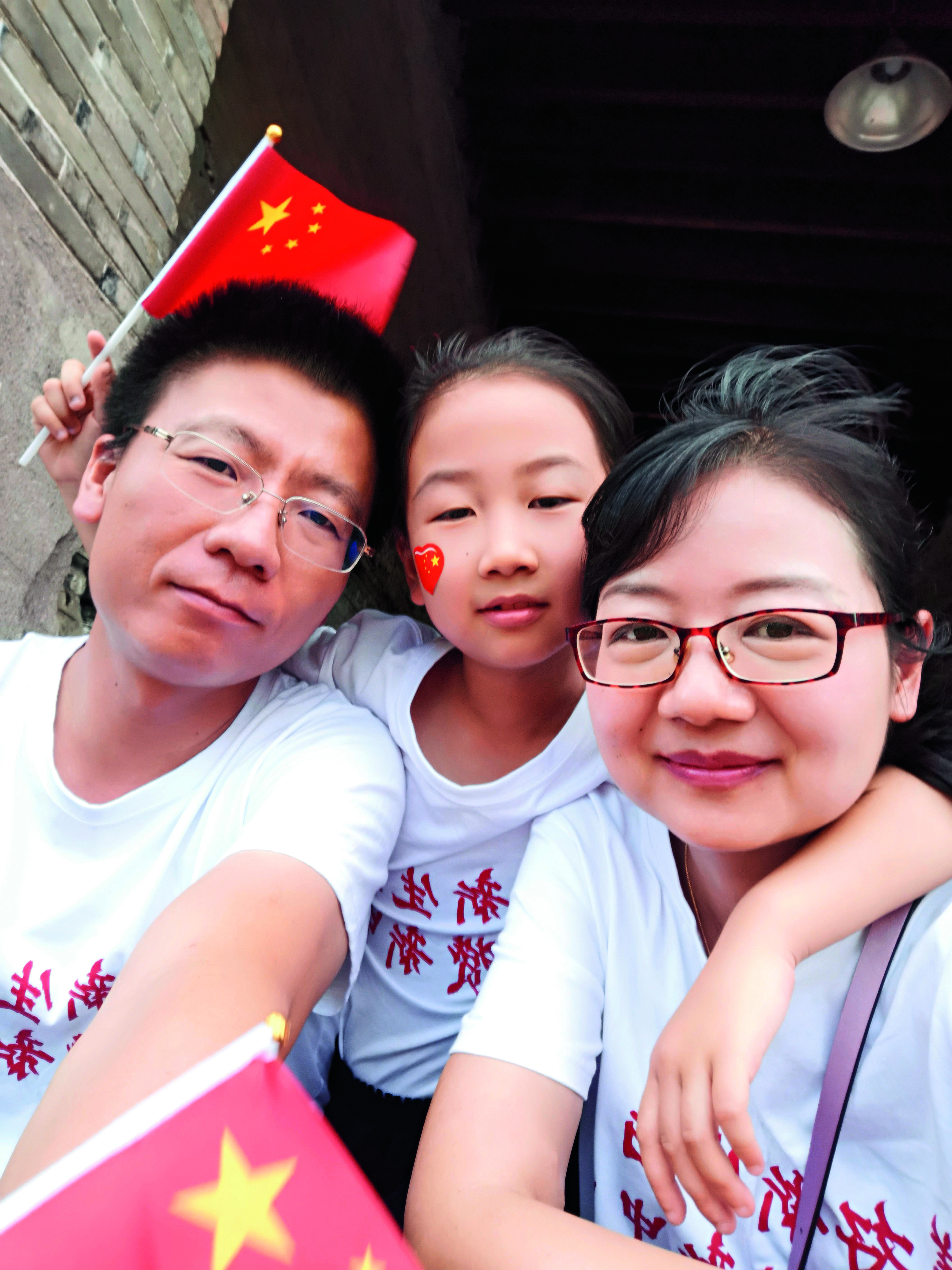
Example Set by Parents
Gu and Wang are careful, persistent and strict when they are working. But if they are playing with Keke and other children in their community, they tend to be more lively and lovely.
The couple attaches great importance to self-management; for example, everyone in their family makes his/her timetable for studying and/or working. They all shoulder the responsibility of keeping their house neat and clean. Every Friday is the time for "family's story-telling session," during which each family member shares an interesting story he/she has read recently. The family also organizes gala events to celebrate festivals. What's more, Gu and Wang encourage Keke to think independently. They point out their daughter's shortcomings and urge her to strive for self-improvement. Meanwhile, Keke tells her parents what she thinks they can do better in their way of education.
Companionship is key to gaining a better understanding of children's needs. Gu and Wang stand at their daughter's side so they can figure out ways to help Keke cope with various difficulties. If Keke fails to do well on an exam, she will tell her parents how she is going to solve her problem.
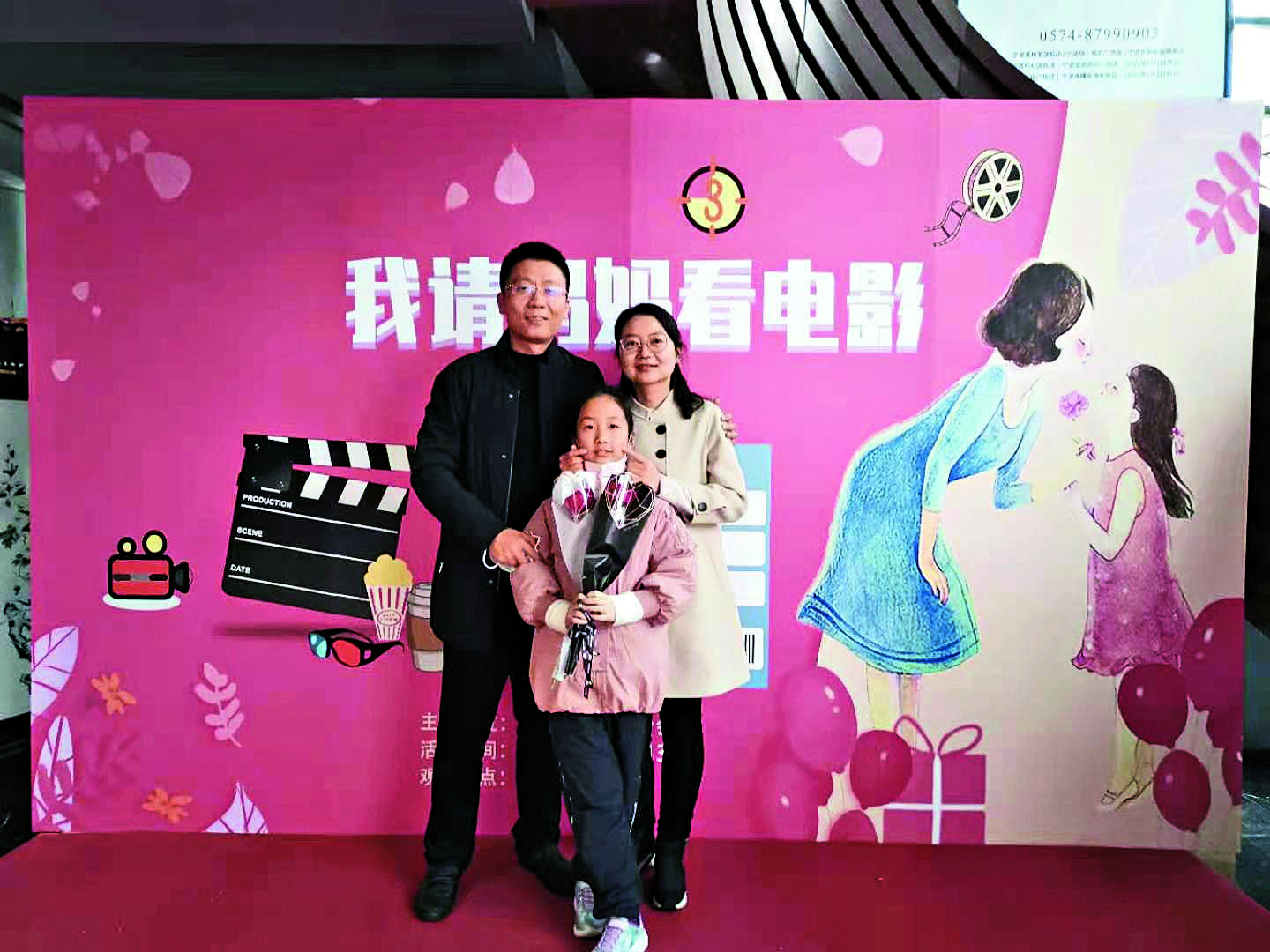
Gu and Wang believe they should set a good example for their daughter. In 2018, when their community launched an activity, aimed at improving residents' lives, Gu and Wang volunteered to provide services. They helped raise residents' awareness of garbage classification, and they taught Keke to shoulder her social responsibility.
During the past several years, Gu and Wang have joined in efforts to combat the spread of novel coronavirus disease (COVID-19). Even today, they work extra hours at their posts or in their community. Keke sometimes stays alone at home. She makes a study plan for herself, and she does her best to support her parents' work. "I want to follow my parents, and help more and more people in need, after I grow up," Keke says, proudly.
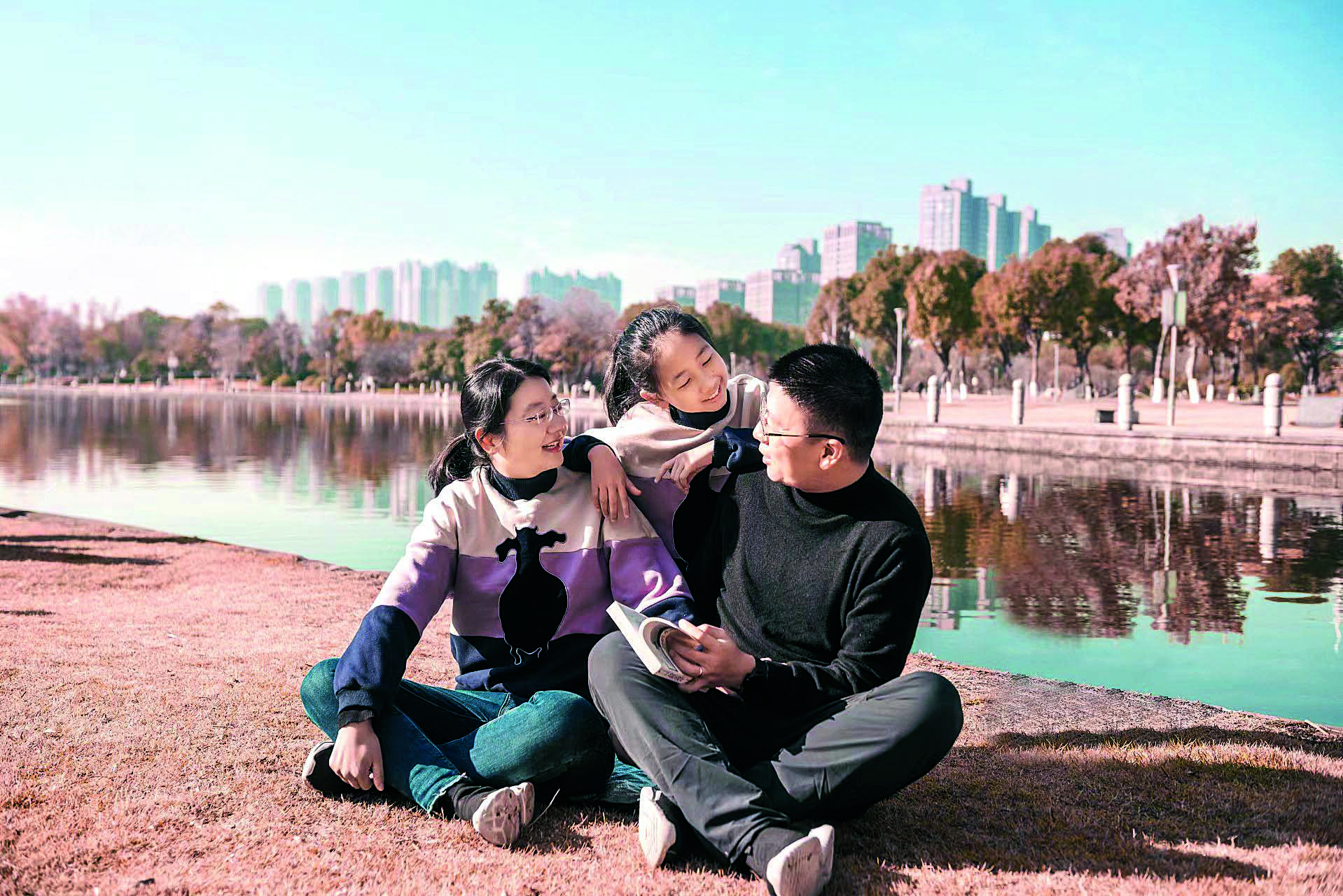
Photos Supplied by Xu Qin (Ningbo Women•She Era) and Interviewees
(Women of China English Monthly May 2022 issue)
Please understand that womenofchina.cn,a non-profit, information-communication website, cannot reach every writer before using articles and images. For copyright issues, please contact us by emailing: website@womenofchina.cn. The articles published and opinions expressed on this website represent the opinions of writers and are not necessarily shared by womenofchina.cn.






.jpg)

 WeChat
WeChat Weibo
Weibo 京公网安备 11010102004314号
京公网安备 11010102004314号